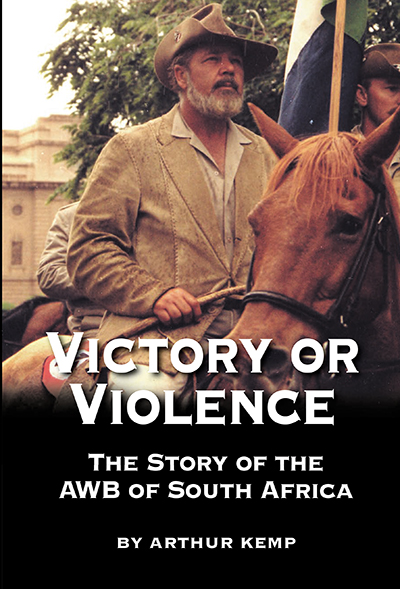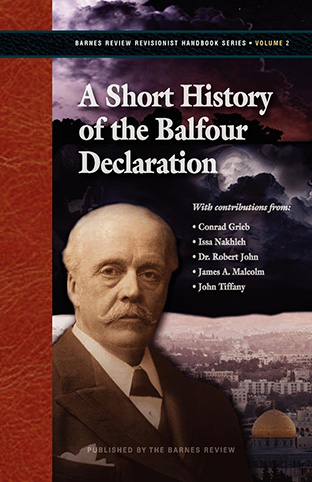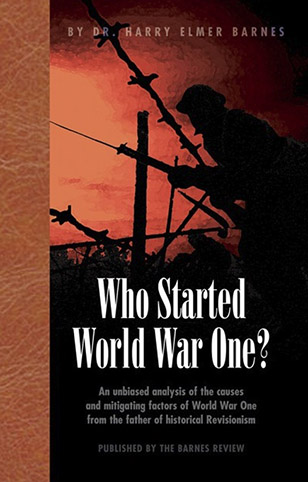Description
By Arthur Kemp. Third edition. The dramatic story of South Africa’s Afrikaner Weerstandsbeweging (AWB—Afrikaner Resistance Movement) and its charismatic leader Eugene Terre’Blanche.
At 10:10 AM on April 24, 1994, the largest terrorist bomb that ever exploded in South African history, detonated in a car in central Johannesburg.
The explosion threw the vehicle across the street and ripped a gaping hole in the road. Several buildings were flattened in the attack, aimed at the nearby African National Congress (ANC) headquarters. Ten people were killed in the blast, including foreign journalists and one ANC candidate in the upcoming elections.
The Afrikaner Weerstandsbeweging (AWB, or, in English, the Afrikaner Resistance Movement) was responsible for the bombing, and the many that followed.
So serious was the AWB’s campaign of violent resistance against impending ANC rule, that the then government was forced to call out a state of emergency in the many parts of the country, as ANC sabotage squads targeted power networks railway lines, ANC and National Party offices—and more—in a wave of attacks which made all the ANC’s previous efforts at “armed resistance” pale into insignificance.
Read here of the early founding of the AWB, the backgrounds of its leading characters, the increasing militancy which accompanied the then government’s political reform program, the development of the movement’s ideological basis, and finally, the turn to violent resistance as the program to hand over control of the country to the ANC speeded up.
No understanding of South Africa’s history is complete without this largely eyewitness account of hardline Afrikaner resistance to the end of white rule.
This third edition is updated to include the 2011 murder of Eugene Terre’Blanche.
Illustrated throughout with many rare photographs, and fully indexed.
Contents
- Foreword
- Chapter 1: The Founding
- Chapter 2: The Tar and Feather Party
- Chapter 3: The Right Wing Buildup
- Chapter 4: The Arms Trial
- Chapter 5: A New Militancy
- Chapter 6: The ANC and Rudolf Hess
- Chapter 7: The AWB and the Conservative Party
- Chapter 8: From Standerton to Donkerhoek
- Chapter 9: The Volkstaat
- Chapter 10: Personal Scandals
- Chapter 11: A New Strategy
- Chapter 12: New Principles
- Chapter 13: The Arming of the AWB
- Chapter 14: The White Wolf
- Chapter 15: UNTAG and the Order of Death
- Chapter 16: The Orde Boerevolk
- Chapter 17: The Battle of Ventersdorp
- Chapter 18: The MP Who Planted Bombs and the March Referendum
- Chapter 19: The Death of Chris Hani
- Chapter 20: The World Trade Center Invasion
- Chapter 21: The Storm Brews
- Chapter 22: The Secession Plan—and Why It Failed
- Chapter 23: Death in the Dust
- Chapter 24: The AWB Alone
- Postscript
- Index
About the author: Arthur Kemp was born in Southern Rhodesia in 1962. Educated in South Africa, he holds a degree in Political Science, International Politics and Public Administration, having studied at the University of Cape Town and the University of South Africa. He worked as a journalist on a major South African newspapers during the 1980s and 1990s and was an eye-witness to most of the events detailed in this book. In addition, many of the leading characters gave the author exclusive interviews and access to their personal records.
Softcover, third revised edition, 302 pages.


